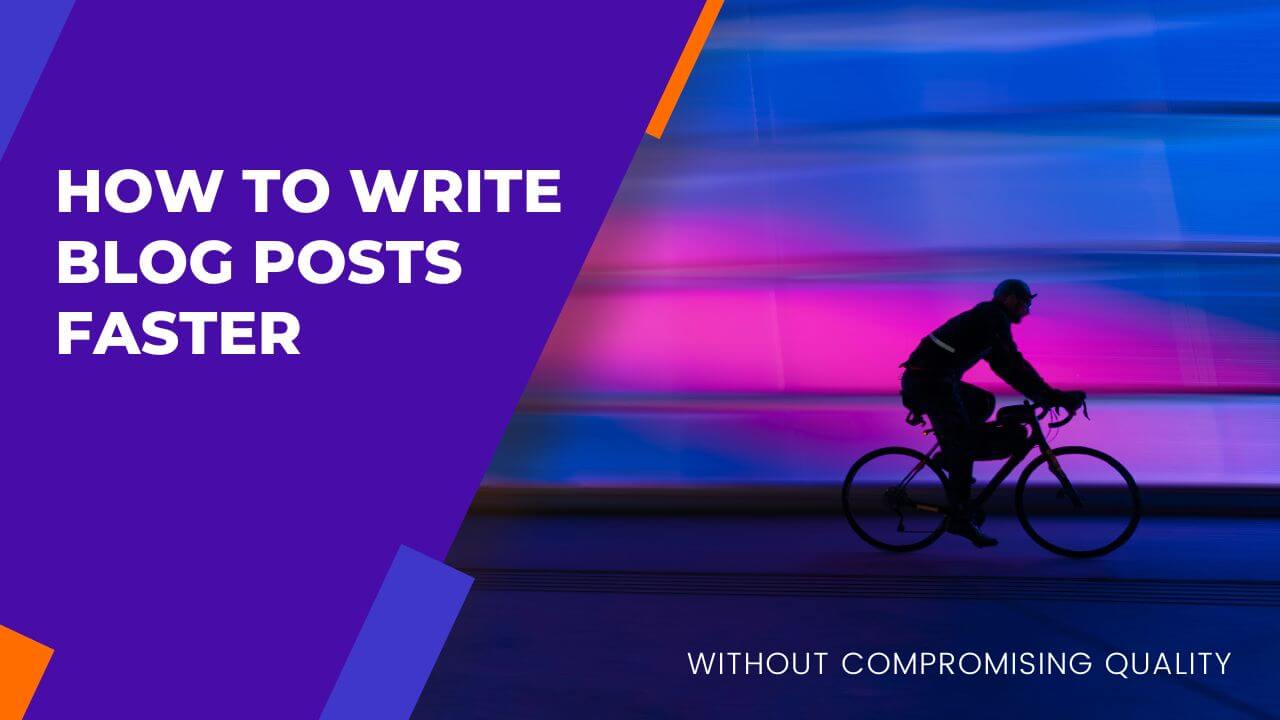
Last Updated on July 27, 2023
When it comes to SEO, many different factors can affect your website’s search engine rankings. One of the most important elements of SEO is writing a great meta description. A meta description is a short writing description that appears below the title tag in search engine results pages (SERPs) and provides a summary of the content on the page.
A meta description is important because it can entice users to click through to your website, even if your page needs to be ranked number one in the search results. A well-crafted meta description can give users a compelling reason to visit your site. It can even improve your click-through rate (CTR) and search engine rankings.
In this post, we’ll look at how to write a great meta description from an SEO expert’s perspective. We’ll discuss the purpose of a meta description, how to write for your audience, the ideal length for a meta description, how to strategically use keywords, the importance of highlighting your unique selling points, including a call-to-action, and optimizing for search engines. In this article, you’ll also understand how to write compelling meta descriptions that engage users, improve your CTR, and boost your SEO efforts.
How To Write a Great Meta Description: Understanding The Purpose
Before we dive into the concept of writing a great meta description, it’s essential to understand the purpose of a meta description. A meta description is an advertisement for your website. It’s the first thing that users see when they search, and it can significantly impact their decision to click through to your site.
In addition to being an advertisement, meta descriptions impact your search engine rankings. While meta descriptions are not a direct ranking factor, they do play a role in how search engines interpret the content of your page. A well-written meta description can help search engines understand what your page is about and, in turn, improve your visibility in the search results.
It’s important first to understand the purpose of this small but mighty element of your website’s SEO strategy. As we mentioned, a meta description is a short blurb below the title tag on search engine results from pages. Its purpose is to briefly summarise the page’s content and entice users to click through to your website. Your meta description is your opportunity to sell your page to potential visitors.
When a user types a search query into a search engine, they are presented with a list of results that match their query. Each result includes a title tag, a meta description, and a URL. The title tag is the main headline in the search results. At the same time, the meta description provides additional context about the page’s content.
1. Write for Your Audience
When writing a great meta description, keeping your audience in mind is essential. After all, your meta description is the first impression potential visitors will have of your page, so you want to ensure that it speaks directly to them.

To write for your audience, start by thinking about your ideal visitor. What are they looking for? What questions do they have? What concerns are they trying to solve? Once you understand your audience, you can tailor your meta description to their needs and interests.
When writing your meta description, use language and phrasing that resonates with your audience. Avoid using technical jargon or industry-specific terminology that your audience may not understand. Instead, use simple, easy-to-understand language that communicates the value of your page.
It’s also essential to ensure that your meta description accurately reflects the content of your page. Don’t try to bait and switch your audience with a misleading meta description, as this can quickly lead to frustration and a high bounce rate.
Ultimately, the goal of writing for your audience is to create a meta description that speaks directly to their needs and interests while accurately reflecting the content of your page. Doing so can improve your click-through rate and drive more traffic to your site.
For example, you run a website that sells organic skincare products. Your target audience is likely health-conscious individuals interested in natural and organic products. In this case, your meta description should use language that appeals to this audience. You could mention organic ingredients or highlight the benefits of using natural skincare products.
Also Read: How to Write Blog Posts Faster Without Compromising Quality
2. Keep it Short and To-The-Point
When it comes to writing a great meta description, brevity is critical. Since your meta description is limited to a certain number of characters (typically around 155-160 characters), keeping your description short and to the point is essential.
A short, concise meta description is more accessible for users to read and understand and can improve your click-through rate by making your page more enticing and attractive to potential visitors.
To keep your meta description short and to the point, focus on the most critical and relevant information about your page. What is the main topic or theme of your page? What value or benefit does your page offer to visitors? What makes your page unique or different from other pages on the same topic?
When crafting a great meta description, avoid using filler words or phrases that don’t add any value to your description. Instead, focus on using clear, concise language that accurately reflects the content of your page.
By keeping your meta description short and to the point, you can create a description that is easy for users to read and understand while improving your chances of ranking higher in search engine results from pages.
3. Write A Great Meta Description By Using Keywords Strategically
Keywords are essential to any SEO strategy and play a role in meta descriptions. Including relevant keywords in your meta description can help search engines understand what your page is about and improve your visibility in the search results.
However, it’s essential to use keywords strategically. Keyword stuffing, or cramming as many keywords as possible into your meta description, can hurt your SEO efforts. Not only does it look spammy to users, but search engines may also penalize you for over-optimization.
Instead, include one or two relevant keywords in your meta description. Choose keywords that accurately describe the content of your page and that your target audience is likely to search for. For example, if you run a website that sells yoga mats, you might include the keyword “yoga mats” in your meta description.
4. Highlight Unique Selling Points
In addition to describing the content of your page, your meta description should also highlight your unique selling points. What sets your website apart from others in your niche? Why should users click through to your site instead of others in the search results?
For example, offering free shipping on all orders could be a great selling point to include in your meta description. Or, if you have an extensive selection of products, you could also mention that. Whatever your unique selling points, highlight them in your meta description to entice users to engage through your website.
5. Includes Call-to-Action in Meta Description
A call-to-action (CTA) is a short phrase or sentence encouraging users to take a specific action. In the case of a meta description, the CTA should enable users to click through to your website. Including a CTA in your meta description can be an effective way to increase click-through rates and engagement.
You can use many different types of CTAs in your meta description. Some examples include:
- Shop now
- Learn more
- Sign up
- Get started
Whatever CTA you choose, make sure that it accurately reflects the action you want users to take and that it aligns with the content of your page.
A Great Meta Description Is Optimized for Search Engines
While writing a great meta description is vital for engaging users, optimizing your meta description for search engines is also essential. Here are a few tips for doing so:
- Use your target keyword(s) in the meta description
- Write a unique meta description for each page on your website
- Avoid duplicate meta descriptions
- Include your brand name (if applicable) in the meta description
- Use a clear and concise description of the page’s content
In addition to writing for your audience, optimizing your meta description for search engines is essential. Incorporating relevant keywords into your meta description can improve your chances of getting a high ranking in search engine results pages (SERPs).
Conduct keyword research to identify your page’s most relevant and high-volume keywords when optimizing your meta description for search engines.
Once you have identified your target keywords, incorporate them naturally into your meta description. However, avoiding keyword stuffing or overusing keywords is essential, as this can harm your search engine rankings.
In addition to using relevant keywords, writing the perfect meta description for each page on your website is essential. Avoid using duplicate meta descriptions, as this can confuse search engines and make it difficult for them to understand the content and relevance of each page on your site.
Another critical factor to remember when optimizing your meta description for search engines is the length of your description. As mentioned, most search engines limit meta descriptions to 155-160 characters. Keep your meta description within this character limit; you can ensure that it displays correctly on search engine results pages and improves your chances of attracting clicks from potential visitors.
Optimizing your meta description for search engines can improve your website’s rankings and drive more traffic. By following these tips, you can help search engines understand what your page is about and improve your visibility in the search results.
Final Thoughts
Writing a great meta description is an essential part of any SEO strategy. A well-written meta description can entice users to click through to your website, improve search engine rankings, and drive more traffic.
By understanding the purpose of a meta description, writing for your audience, keeping it short and sweet, using keywords strategically, highlighting your unique selling points, including a call-to-action, and optimizing for search engines, you can create compelling meta descriptions, engage users and improve your SEO efforts. So, take the time to craft a great meta description for each page on your website and watch your click-through rates and traffic soar!






